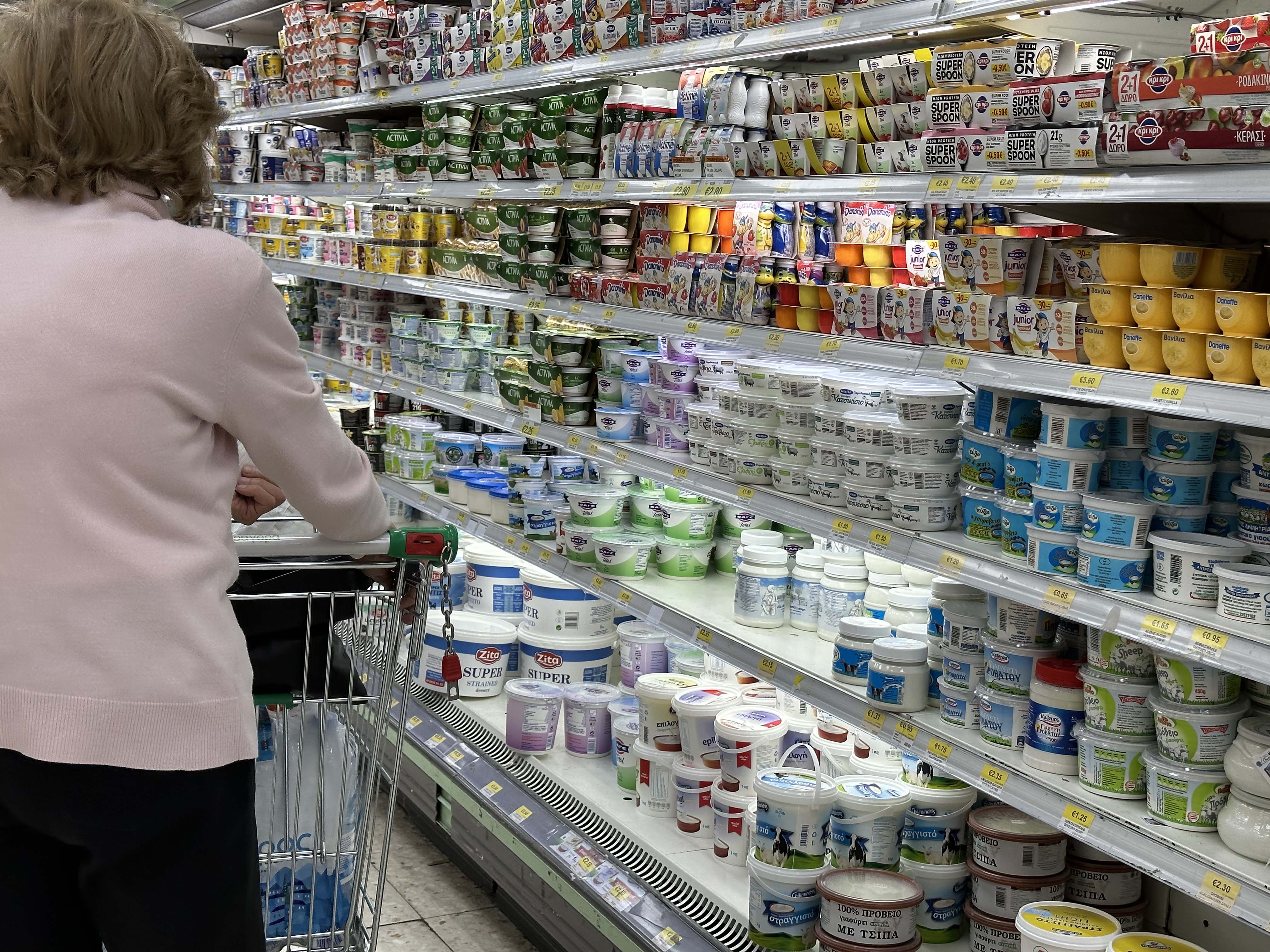Three out of ten households reported a decrease in income, according to the data of the major market survey, which has been conducted for the Cyprus Consumers & Quality of Life Association by the company CMRC CYPRONETWORK LTD of the CYPRONETWORK group.
During the presentation of the survey results on Wednesday in Nicosia, the Executive Chairman of CMRC CYPRONETWORK LTD Christos Michaelides said that almost four out of ten households expect their financial situation to be worse in the next ten months, while one in two expect that Cyprus’ economy will decline in the next six months.
According to Michaelides, citing the conclusions of the research, three out of ten households declared a decrease in their incomes, six out of ten no differentiation and one out of ten an increase in their incomes.
Compared to 2021, he said that fewer households reported a decrease, to note that respectively four out of ten households have decreased their purchases and two out of ten had an increase.
He added that a total of six out of ten households describe their financial situation as difficult or very difficult, while he noted that as shown by the results of the survey “people are making less trips to save fuel”.
In addition, nine out of ten respondents talked about price increases and an increase in electricity, while in relation to household loans “four out of ten households have loans and three out of ten consider that their family is over-indebted.”
He added that the results showed that “two in ten borrowers believe they will not be able to meet their obligations, almost four in ten households expect their financial situation to be worse in the next ten months, and only one in seven expect it to be better.”
According to Cypriots, the two most worrying issues in Cyprus today are the increases in the prices of goods and services and the increases in energy prices (68 per cent and 60 per cent respectively).
In a second grouping and a clearly lower percentage are found corruption (35 per cent), poverty and social inequality (31 per cent), income reduction (24 per cent) and crime and violence (21 per cent).
On the lower end of the scale are, unemployment is recorded at 17 per cent, high taxation at 13 per cent, insecurity from the Russia/Ukraine war at 10 per cent, the coronavirus pandemic and climate change at 8 per cent and 7 per cent, respectively.
In 2023, the percentage of households facing a survival problem is limited to just 1 per cent, a percentage clearly reduced compared to 2021 (12 per cent). On the other hand, those who get by on their household income remain stable at around 21 per cent, with a significant increase noted by those who reported that they are barely getting by on their household income (44 per cent in 2023, compared to 30 per cent in 2021).
Those who reported that they have difficulty either a little or a lot with their income remain rather stable at 19 per cent and 15 per cent, respectively.
In addition, according to the survey, eight out of ten consumers reported in 2023 that their miscellaneous expenses have increased (81 per cent), while six out of ten have reduced both their entertainment and vacation expenses compared to the past (58 per cent and 60 per cent respectively).
An equally significant proportion of consumers have reported that they have reduced spending on clothing and footwear, as well as spending on branded supermarket consumer goods.
Also noteworthy are the findings in relation to important purchases such as a house, furniture, electrical appliances or a car, technology items or even for home renovation where many consumers answered negatively, they will not make this type of expenditure, a percentage that varies between 67 per cent and 80 per cent.
The President of the Cyprus Consumers & Quality of Life Association, Dr Loucas Aristodemou, said that “product price increases are continuous in some basic products, such as for example sugar, the price of which is constantly increasing.”
According to Aristodemou, “in Cyprus the state unfortunately does not investigate the tariffs of importers and suppliers and therefore importers have the opportunity to increase the prices to retailers and retailers consequently raise their prices.”
“Prices have remained high and have not subsided, even though international freight rates have decreased – what they used to argue – fuel prices have decreased and the price of electricity has not increased. And yet we did not notice reductions in either services or products,” he noted.







Click here to change your cookie preferences